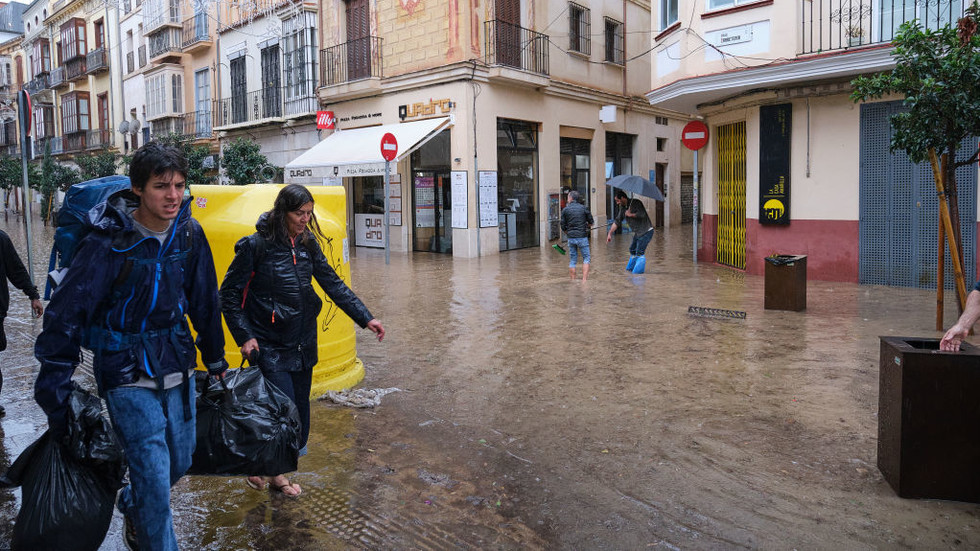Spain’s left-wing government is making significant strides to address the growing threat of climate emergencies by implementing a new law that guarantees workers up to four paid days off due to extreme weather conditions. Labor Minister Yolanda Diaz announced this legislation after a devastating incident in Valencia, where torrential rains caused flash flooding that resulted in the deaths of over 200 individuals. The law was passed by Prime Minister Pedro Sanchez’s Socialist Workers’ Party in response to increasing concerns about worker safety during severe weather events. Under this law, workers will be entitled to paid leave when extreme weather warnings are issued by civil protection and meteorological organizations, ensuring that they do not face unnecessary risks when traveling to work.
The tragic loss of life in Valencia has intensified scrutiny on local leaders, especially Regional President Carlos Mazon. Following the floods, many locals expressed frustration over Mazon’s failure to issue timely warnings and alerts that could have protected residents and workers. In defense of his actions, Mazon claimed that he was not adequately informed about the gravity of the situation by the government’s water monitoring agency. The public outrage has led to calls for accountability from not just Mazon but also from Prime Minister Sanchez and Spanish King Felipe VI, highlighting a broader demand for responsible governance during natural calamities.
In her speech, Diaz placed considerable blame on Mazon for the lack of preemptive action before the flooding, positioning the Spanish government as a committed advocate for progressive climate policies amidst the backdrop of rising climate denialism from political opponents. She highlighted the proactive measures the government is taking to mitigate the impact of climate disasters, insisting that worker safety is of utmost priority. The government’s response goes beyond just legislative measures; it also includes substantial financial assistance to aid victims of the flooding disaster. To date, approximately €16.6 billion ($17.5 billion) in aid has been allocated to support the recovery efforts in the affected region, showcasing the government’s commitment to addressing the aftermath of such catastrophic events.
The new legislation represents a shift in how labor rights and environmental concerns intersect, effectively acknowledging the undeniable impacts of climate change on everyday life and work. Instituting paid climate leave not only protects workers but also demonstrates a governmental recognition of the severity of climate-related challenges that may increasingly affect job security and worker well-being. This legislation could pave the way for similar measures in other regions facing climate emergencies, signifying a growing trend of governmental responsibility toward ecological crises.
Critics, however, may point out the challenges of implementation and the potential strain on businesses, particularly smaller enterprises, that may struggle to cover the cost of extended paid leave for their employees. The law stipulates that when extreme weather conditions persist beyond four days, employers can opt to extend this climate leave with government assistance to compensate for the financial burden. This provision addresses concerns about economic impacts while ensuring that worker safety remains paramount during emergencies. As the frequency of climate-related disasters increases, the implications for labor rights, business sustainability, and governmental intervention will become more pronounced in policy discussions.
Overall, Spain’s innovative approach to labor rights in the context of climate emergencies reflects a broader recognition of the need to adapt societal infrastructure to an evolving climate landscape. By prioritizing the safety and rights of workers during severe weather events, the Spanish government is not only responding to immediate humanitarian needs but also reinforcing a commitment to long-term sustainability and accountability in governance. As more regions contend with the unpredictable nature of climate change, the legislative measures being introduced in Spain may serve as a vital precedent for future policies worldwide.

